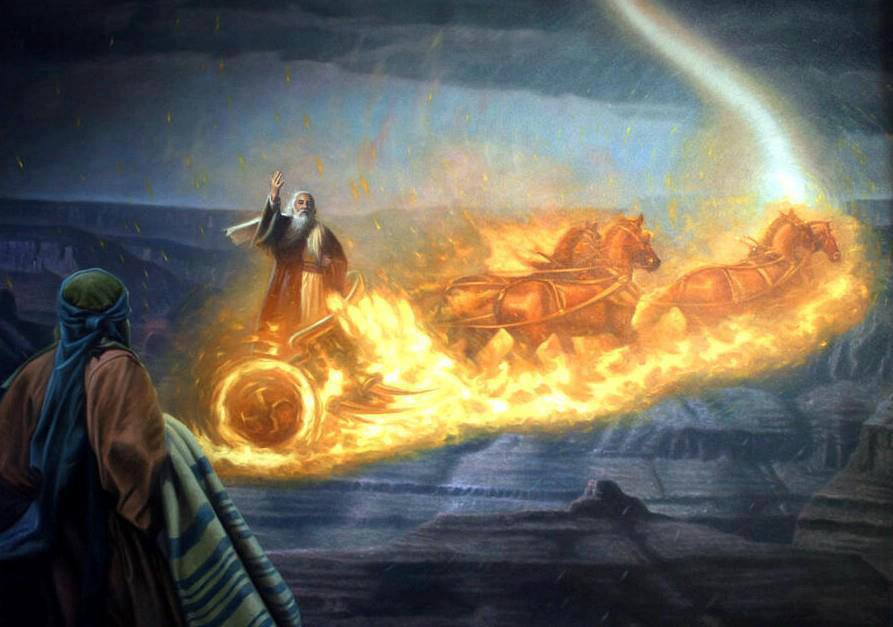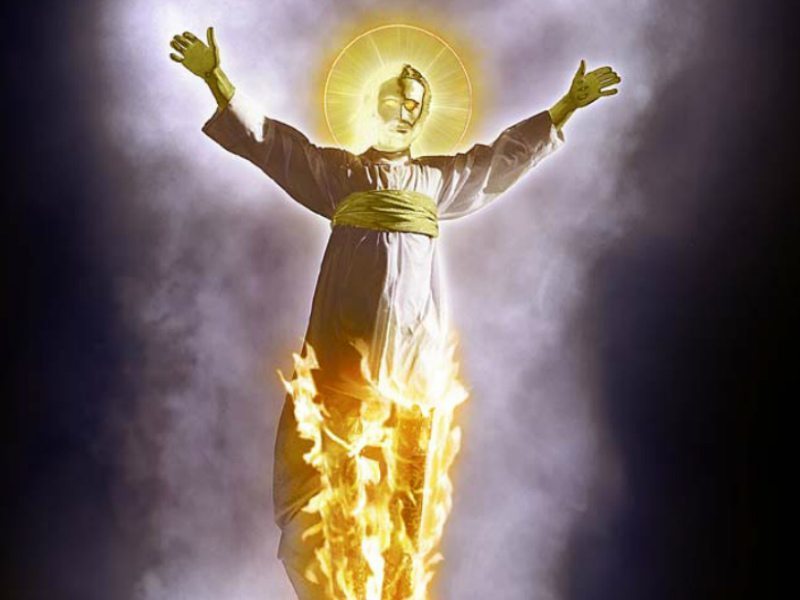Tuesday, May 11
It is enough! Now, O Jehovah, take my life away. —1 Ki. 19:4.
Elijah became afraid when Queen Jezebel threatened to kill him. So he fled to the area of Beer-sheba. He became so discouraged that “he asked that he might die.” What made him feel that way? Elijah was an imperfect man, “a man with feelings like ours.” (Jas. 5:17) Perhaps he felt overwhelmed by stress and physical exhaustion. It seems that Elijah thought that his efforts to promote pure worship had been futile, that nothing in Israel had improved, and that he was the only one still serving Jehovah. (1 Ki. 18:3, 4, 13; 19:10, 14) Jehovah understood Elijah’s feelings and did not scold him for expressing them. Instead, he helped Elijah regain strength. (1 Ki. 19:5-7) Later, Jehovah kindly adjusted Elijah’s thinking by demonstrating His awesome power. Jehovah then pointed out that he still had 7,000 in Israel who refused to worship Baal. (1 Ki. 19:11-18) In practical ways, Jehovah showed Elijah that He loved him. w19.06 15-16 ¶5-6
The Bible is an extraordinary book. There is nothing to compare to it. It is the product of the superior wisdom of God. It tells the whole story, from A to Z, of how we got here and where we are going. Although the compilation of all the documents that make up the Bible took place over many centuries, culminating with the birth of Christianity, there is a unifying theme tying it all together—the vindication of Jehovah’s sovereignty.
The so-called Old Testament, which documents the history of Israel, is largely dismissed as irrelevant by those who consider themselves to be Christians. The Watchtower is no exception. Although ostensibly accepting the Bible as authentic by relegating accounts, such as that of Elijah, into feel-good, ‘God loves you’ Sunday school lessons, the Watchtower also has effectively rendered important parts of Hebrew history into irrelevance.
The last book of the Bible alludes to Elijah, not by name, but by describing actions undertaken by the two witnesses. Elijah began his work by ordering the sky to shut up so that no rainfall occurred for a period of three and one-half years. Not coincidently, the two witnesses prophesy for 42 months and are said to perform a similar miracle. Also, Elijah called upon Jehovah and made fire roar down from heaven to consume a sacrifice he had prepared, afterwards, Elijah ordered Jezebel’s prophets of Baal to be slaughtered. Similarly, it is said of the two witnesses: “If anyone wants to harm them, fire comes out of their mouths and consumes their enemies. If anyone should want to harm them, this is how he must be killed.”
The Watchtower claims the two witnesses came on the scene over 100 years ago and were killed off. Who can believe such poppycock?
According to the symbolic letter written to the Thyatira congregation that will exist during the Lord’s day, Jesus has an issue with some Christians because of their tolerating the evil presence of Jezebel. “Nevertheless, I do hold this against you, that you tolerate that woman Jezebel, who calls herself a prophetess, and she teaches and misleads my slaves to commit sexual immorality and to eat things sacrificed to idols. And I gave her time to repent, but she is not willing to repent of her sexual immorality. Look! I am about to throw her into a sickbed, and those committing adultery with her into great tribulation, unless they repent of her deeds. And I will kill her children with deadly plague, so that all the congregations will know that I am the one who searches the innermost thoughts and hearts, and I will give to you individually according to your deeds.”
Baal worship was a degrading form of phallic worship. However, the sexual immorality promoted by the “Christian” Jezebel does not necessarily involve literal adultery or fornication on the part of those who tolerate her. Idolatry has many forms. It can take the form of worshipping an organization that protects pedophiles from prosecution; essentially, tolerating a form of child sacrifice.
It is noteworthy that Elijah had all the prophets of Baal slaughtered. Jesus warns that he is going to kill off Jezebel and her demon seed with a deadly plague, throwing her into great tribulation—obviously, during the great tribulation. Jesus said he would war against the idolators in the Pergamum congregation with the long sword of his mouth. The fact that the two witnesses kill their enemies by the fire from their mouths must mean that the chosen who see Christ during the parousia will announce Christ’s judgments and pronounce death to those idolators who boast of having established pure worship.



